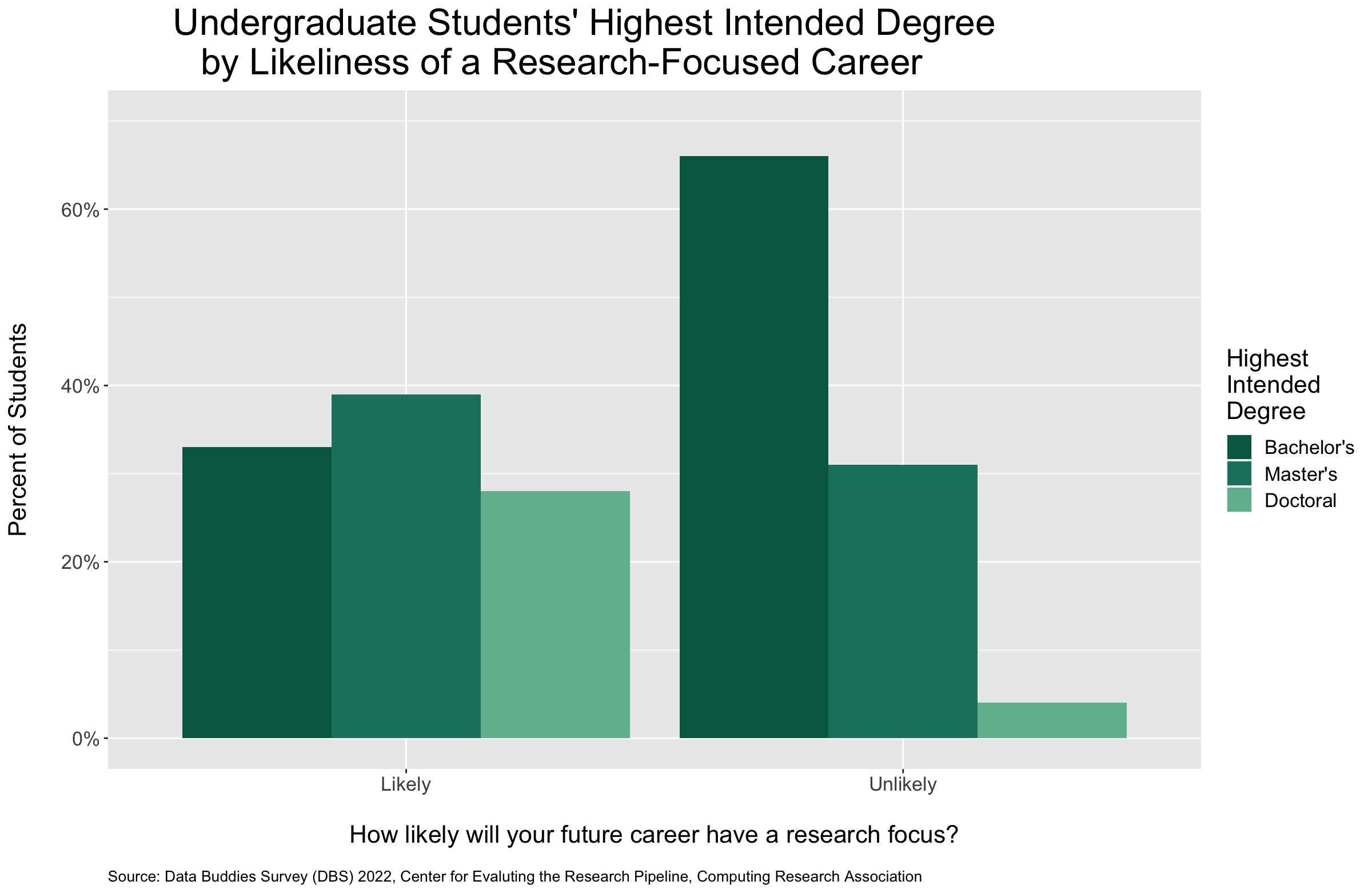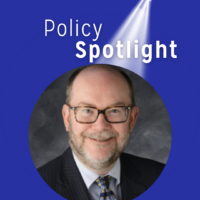Undergraduates’ Likely Interest in a Research-Related Career is Connected to Their Highest Intended Degree
By Evelyn Yarzebinski, Manager, CERP

Students who are enrolled in Bachelor’s degree granting programs are faced with the decision of whether to continue on to graduate school after they have earned their Bachelor’s degree. There are many facets to this decision, such as whether their future career will include a focus on research, as graduate-level studies can provide more specialized research training. To what extent does the prospect of a research-focused career impact undergraduates’ degree-earning plans? CERP summarized the results of the Fall 2022 Data Buddies Survey (DBS) for Undergraduates to understand this relationship.
A total of 4,658 undergraduates responded to the question about their highest intended degree and indicated likeliness or unlikeliness of having a research-focused career in the future. CERP generated a summary of undergraduates’ responses for these two survey questions, displayed in the graphic here. Overall, 66% of undergraduates who indicated they were unlikely to have research-focused career in the future also indicated they planned to earn a Bachelor’s degree as their highest degree. Surprisingly, a small percentage of undergraduates indicated plans to earn a Doctoral degree despite also reporting unlikeliness of having a research-focused career (4%). Among undergraduates indicating likeliness of a research-focused career in the future, the reported highest intended degrees saw a more balanced response across the three degree types, ranging from 28%-39%.
A chi-square test of independence was conducted to analyze the relationship between likeliness of a research-focused career and highest degree plans. There was a significant relationship between these variables, χ² (2, N = 4658) = 757, p < 0.001; there is a connection between undergraduates’ likeliness of having a research-focused career and the highest degree they intend to earn. Cramer’s V indicated a medium effect size (V = 0.40).
Future work may include further analyses of other factors that motivate decisions regarding highest intended degree or likeliness of a research-focused future career.
Notes:
Data included are:
- Undergraduate responses to the question “How likely will your future career have a research focus?” were collected on the 5 point scale of (1) Extremely unlikely to (5) Extremely likely. Responses were collapsed into two categories for this analysis: “likely” if a respondent selected “Somewhat likely” or “Extremely likely” and 2) “unlikely” if a respondent selected “Somewhat unlikely” or “Extremely unlikely.” Neutral responses of “Neither unlikely nor likely” were excluded for the purposes of this analysis.
- Undergraduate responses to the question “What is the highest degree you plan to attain?” Responses were filtered to focus this analysis on the choice options of “Bachelor’s degree”, “Master’s degree” and “Doctoral degree”.
The survey data analyzed for this infographic were collected by the Center for Evaluating the Research Pipeline via The Data Buddies Project. CERP provides social science research and comparative evaluation for the computing community. Subscribe to the CERP newsletter here. Volunteer for Data Buddies by signing up here.
These analysis of data from the Data Buddies Project is currently supported through National Science Foundation (NSF) awards CNS-1840724, CNS-2036717, DUE-1821136, sub-awards and contracts, and direct CRA contributions. Previous NSF awards that supported DBS include CNS-1246649 and DUE-1431112. Any opinions, findings, and conclusions or recommendations expressed in this material are those of the author(s) and do not necessarily reflect the views of the National Science Foundation.









